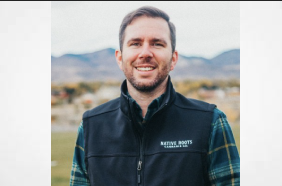Here’s the six with a small description of each. To read the full article go to the link
https://www.nzherald.co.nz/business/news/article.cfm?c_id=3&objectid=12198648
Six firms to watch
From the primordial ooze of the still-forming cannabis industry, several Kiwi companies have quickly stuck their heads above the mass around them.
What the six indicate is that there’s no blueprint for entering an industry that doesn’t yet exist. Each company has a unique approach, and as with any start-up scene, it’s anyone’s guess who will survive.
Hikurangi Cannabis
Founded in 2015 by a group of marae representatives on the East Coast near Ruatōria, Hikurangi has had a decent head start on its competitors.
Co-founder Caddie sees the firm’s humble origin story as one of its biggest strengths.
“We’ve seen the example of what happens in Australia when start-up companies with great marketing machines pump themselves up to attract a lot of investment but then can’t deliver on the expectations raised,” he says. “In many cases, founders seem to have done it as a way to capitalise on this latest trend with no intention of establishing a long-term business that is good for sick patients, shareholders, employees and the wider society.”
/arc-anglerfish-syd-prod-nzme.s3.amazonaws.com/public/TKP6FTFUBBHAVOARXUOQI2RCME.jpg)
The company grew its first crop of industrial hemp in 2016, a time that coincided with the first strong indications that regulatory change was on the cards.
The visual appeal of that first crop proved a powerful tool for the company, attracting interest from journalists and making Hikurangi a household name in New Zealand.
That interest was later parlayed into a crowd-funding campaign, arranged through Waiapu Investments, which led to the PledgeMe site crashing twice as Hikurangi sold all its shares in six minutes, raising $2.4 million.
The company also attracted two institutional investors who, says Caddie, “contributed substantially more funds than what was raised through Waiapu Investments”.
Hikurangi, which now employs 22 staff, is also weighing up the possibility of another fund-raising round this year, which would again open the door to Kiwi investors.
/arc-anglerfish-syd-prod-nzme.s3.amazonaws.com/public/22VIUJ7NXFCQLJGQTWTALR4KUM.jpg)
The company has already established strategic partnerships with international organisations, researchers and local growers.
Combined, these factors have set up Hikurangi as one of the most influential voices in the early stages of the cannabis sector.
One caveat, however, is that it doesn’t always pay to be first in the start-up scene. In the case of cannabis, the earlier you start, the longer you have to wait in regulatory limbo and the more money you eventually burn through.
Helius Therapeutics
Helius Therapeutics may have launched about two years after Hikurangi, but the company has quickly established a prominent voice in the industry.
Founded on seed capital from experienced businessmen Paul Manning, JP Schmidt and Gavin Pook, Helius quickly positioned itself as the legitimate foil to the industry’s shadowy side.
“We’re attempting to convert a black market to a legitimate economy, while entering one of the most regulated environments in the world: medicine,” says Manning. “The path to success is fraught with extraordinary challenges.”
/arc-anglerfish-syd-prod-nzme.s3.amazonaws.com/public/24RLPUBI45BZRM77W4YU4APO7Y.jpg)
Helius has won the attention of rich lister Guy Haddleton, who joined the company and helped raise $15m from local investors.
The Helius team put this money to work, acquiring two large Auckland sites which are being developed to create a highly controlled environment for the cultivation and production of high-grade cannabis products suitable for export.
/arc-anglerfish-syd-prod-nzme.s3.amazonaws.com/public/JWYRT5FINNEXXGJMGQQVDVPVWU.jpg)
“We are focused exclusively on medicinal cannabis and, unlike most other start-ups in this space, we have no plans to enter the recreational market,” says Manning.
Given the demands of operating in the medicinal sphere, Manning warns potential investors to be wary of companies that do not yet have a licence. “Just because a company has applied, that means nothing. We’re working in the field of medicines. The process is rigorous, iterative and takes a very long time to complete,” he says.
Another thing that takes time is legal change. And with large facilities, steadily growing staff numbers and ongoing marketing expenses, Helius will be burning through cash more quickly than other players in the market.
Cannasouth
Cannasouth co-founders Mark Lucas and Nic Foreman have been involved in researching and cultivating industrial hemp since 2002, when they were granted one of New Zealand’s first cultivation licences.
Cannasouth, however, was registered in May 2017 and has emerged as one of the first cannabis companies to express a desire to list on the NZX.
Lucas says planning for the listing is underway, with the company now being audited by Deloitte in preparation for listing in the second quarter of this year.
/arc-anglerfish-syd-prod-nzme.s3.amazonaws.com/public/UPZAI6TWSNHWPEMEL22J72M4BE.jpg)
The company’s research team has already shown its chops, producing New Zealand’s first Ministry of Health-approved pharmaceutical grade cannabinoid extracts.
Cannasouth has a partnership with the University of Waikato, and has received funding from the Agricultural and Marketing Research and Development Trust and Callaghan Innovation for two studies on cannabinoids.
Setek
The cannabis industry was always going to attract a few curious characters – and none seems more incongruous than retired politician Peter Dunne, who has joined start-up Setek Therapeutics as advisory board chairman.
Company co-founder Mark Mees says that from the outset he and his partner David Pearce wanted to assemble a team of expert consultants and advisers.
Dunne was invited to lead the advisory board and agreed to do so only after running an exhaustive due diligence process on Mees and Pearce, including police background checks.
/arc-anglerfish-syd-prod-nzme.s3.amazonaws.com/public/CEB7QNZIUNHZDHLEBBYVHJ5JUY.jpg)
Mees says they then built an expert team, consisting of businesspeople, academics and scientists, in a process that was completed in December last year.
Rather than seeking investment funding from the outset, Mees has taken a more cautious approach, balancing the danger of unnecessary cash burn against the risk of inertia.
“First mover advantage is good, but we’re more focused on doing it right than getting there first,” Mees says.
“In context with this particular industry, I think the ‘fast follower’ benefits are probably undervalued by many commentators.”
Setek has lodged an application for its cultivation licence and expects to have an answer in the coming weeks. The company plans to start raising funds only after acquiring its licence.
“A number of high net-worth New Zealanders have inquired … about investment opportunities with Setek and we are also in discussion with a very well-known international cannabis company,” says Mees.
Nubu
Another interesting character throwing his hat into the cannabis ring is TV presenter and former Newstalk ZB host Mark Dye.
With co-founder Will Douglas, Dye founded the start-up Nubu at the end of 2017.
Dye says the company has already raised $500,000 through its seed capital funding round and expects to raise up to $10m from its next round. He says this money will be used to develop a growth and extraction facility and also fund R&D.
Like Setek, Nubu has lodged an application for cultivation but is still awaiting Ministry of Health approval.
Dye says Nubu’s strategy is to avoid the commodity game entirely and focus on developing products that are unique to New Zealand.
/arc-anglerfish-syd-prod-nzme.s3.amazonaws.com/public/T4L5TGSVC5DCNNCMDDLWVBIKIY.jpg)
“New Zealand will never be able to produce cannabis cheaper than some of the Latin American countries coming online, or Africa when they start to grow in volume,” he says.
“We want to import high quality but low cost finished commodity products so it’s as accessible as possible for patients locally, and instead focus on the premium end of the market.”
While Nubu is small, Dye doesn’t see that as a disadvantage. “There is room for multiple players,” he says.
“Think of cannabis like the New Zealand wine industry, where there are many successful companies exporting globally. We want to build a successful company and also a successful NZ industry – to do that we need a number of successful New Zealand cannabis companies.”
Zeacann
Another dark horse among the bigger players is Zeacann, a firm that has formed a strategic research partnership with AUT.
Founded by Chris Fowlie and Thom Hooker in 2017, Zeacann put its New Zealand provenance in its name and at the core of the business.
Fowlie, who has pushed for cannabis law reform for the past 20 years, says that while others just want to grow cannabis, Zeacann is focused on developing intellectual property unique to New Zealand.
Zeacann has already launched an online portal that allows cannabis companies to list their products on a vendor-neutral portal designed to offer medical staff simple access to a catalogue of information on medically registered cannabis products.
/arc-anglerfish-syd-prod-nzme.s3.amazonaws.com/public/TAAK7NWBYFAETFSPNIOAXUO2YQ.jpg)
The company remains self-funded, with Fowlie and Hooker running a lean ship as the industry develops.
“We want to retain control in New Zealand and are currently seeking strategic partners who share our vision and passion for helping patients,” Fowlie says.
Looking a little further ahead, Fowlie sees potential for the industry to become much bigger than most imagine – provided the Government doesn’t make it too costly.
“Colorado, with a population little more than New Zealand’s, has over 800 cannabis businesses,” he says. “These range from mom-and-pop farmers and hipster extractors, through to large multi-state operators.”
“But if licences are limited or made really expensive we could see it tied up by a few well-funded operators. We want to open it up. There is room for everyone, and especially if we focus on exports, then really the sky is the limit.”

















